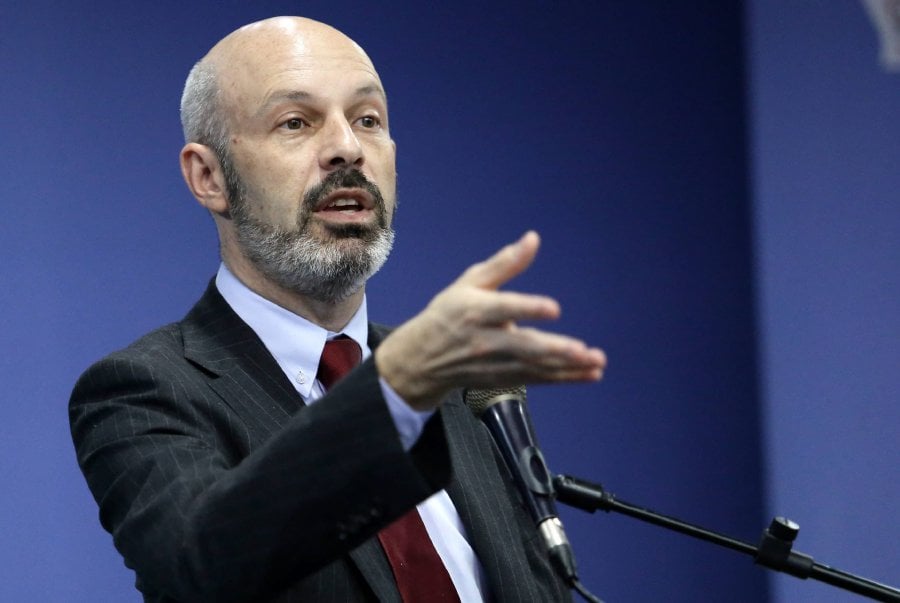SHAH ALAM: There is no criminal target in the 1Malaysia Development Bhd (1MDB) case in the United States and it is merely efforts to trace money and property belonging to the company.
US Supreme Court Advocate Appellate Thomas Goldstein said this today during a talk on "Criminal Litigation in the United States of America” at Universiti Teknologi Mara here when asked about the civil forfeiture action against 1MDB.
“There is currently no action against 1MDB. Only against properties thought to have been procured using money belonging to 1MDB,” he said.
Elaborating on civil forfeiture, he said no one should be deprived of their assets without due process of the law.
Forfeiture of assets, he said, must be preceded by a concluded hearing.
“The DoJ (US Department of Justice) has recently put on hold civil forfeiture lawsuits against assets acquired, because pursuing these may have 'an adverse effect' on its ability to conduct the criminal investigation.
"What the DoJ is doing is preventing the money from being dissipated by starting a criminal action,” Goldstein said.
The DoJ, he added, was just tracing the money and think it may be linked to 1MDB.
"Right now, there is no suggestion of any criminal target.
“There is very little activity pertaining to the case and no one has been named as criminal targets.”
When asked to whom the DoJ would return the seized money, Goldstein said 1MDB has said that the money is not theirs, whereas the case is based on money taken from 1MDB, made by complainants that do not represent 1MDB.
He also confirmed that 1MDB saying the money was not theirs was the reason why it had taken the DoJ this long to take action.
“A huge amount of money made its way into the US, and the DoJ is interested to know the source of this money. It is not a criminal case and an escalation into one will only make life more difficult for them as there has been no precedent.
"No one has been named in the civil forfeiture suit. If a criminal case were to be developed then it would be a classical criminal case and the burden of proof falls on the DoJ that it has to prove beyond reasonable doubt that crime has been committed,” he said.
Goldstein is one of US’s most experienced Supreme Court practitioners with representations spanning all of the US Federal Law.
He has prevailed in cases of arbitration, bankruptcy, civil procedure, disability law, employment discrimination, the Fourth Amendment, free speech, habeas corpus, immigration, labour, securities, and trademarks.
He also has experience teaching Supreme Court Litigation at Harvard Law School and Stanford Law School.






